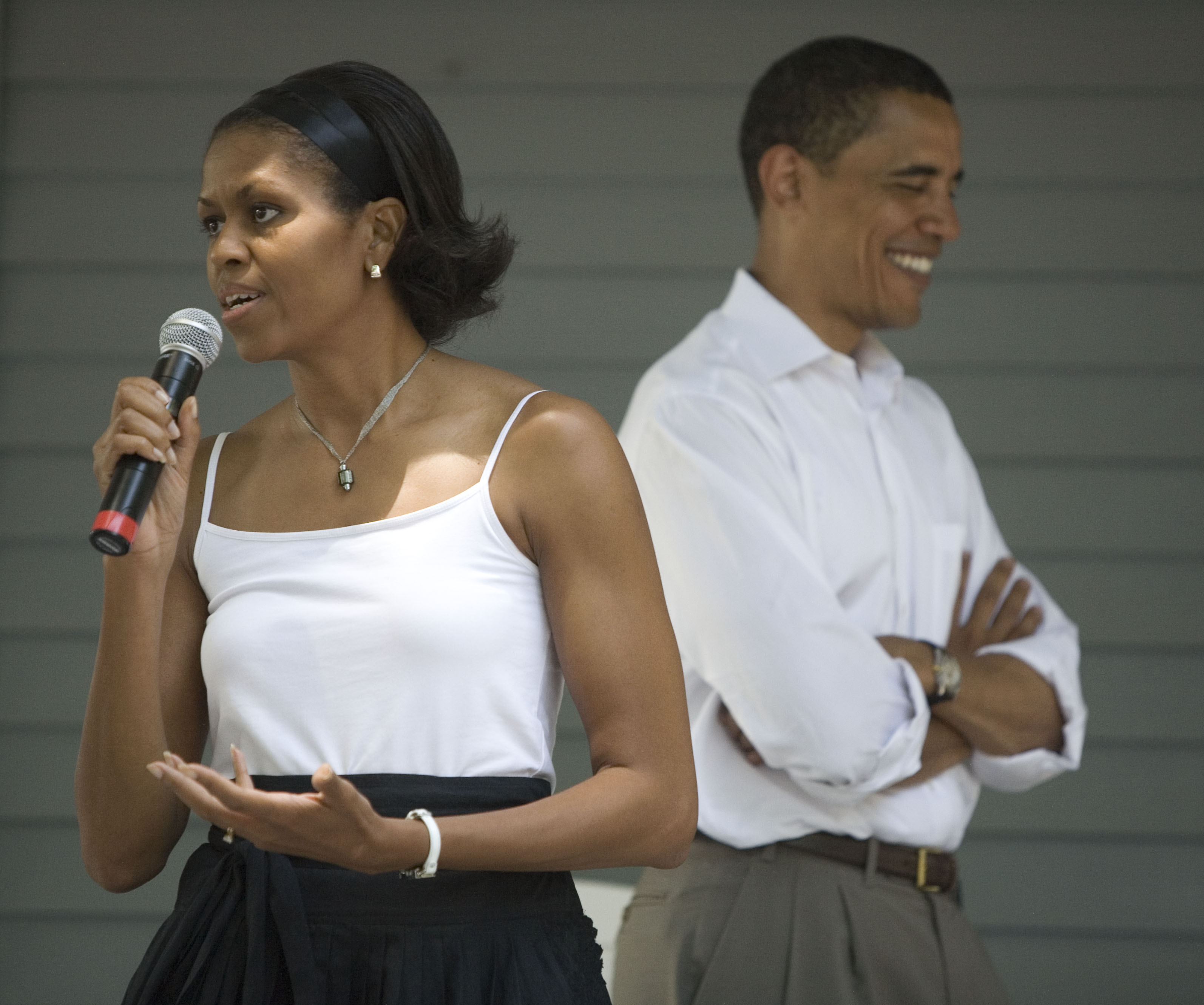There has been some recent debate over the role of the First Lady or First Gentleman. Hillary Clinton, as First Lady, broke convention by taking on healthcare initiatives, reforming foster care and moving her office into the West Wing where she served as a close political adviser to her husband.
In this election, she has been alternately praised for what she accomplished during her terms as First Lady and criticized for implying that this was relevant political experience. On top of it all, Bill Clinton is also getting some heat for overstepping his boundaries, or “not knowing his place” as a candidate’s spouse.
 Although we don’t vote for candidates’ spouses, they certainly impact how we vote. So to what extent should the First Lady or Gentleman influence the presidency?
Although we don’t vote for candidates’ spouses, they certainly impact how we vote. So to what extent should the First Lady or Gentleman influence the presidency?
The role of First Lady, as there has yet to be a First Gentleman, has never been clearly defined in American minds. Each First Lady has transformed the position to fit the role she desired, and each has had significant influence on American culture in the process. The role of First Lady has also been indicative of the changing role of women in American culture, so it should be no surprise that the role of First Lady has come to hold more and more influence with each passing presidential term.
Speaking of influential women, Michelle Obama recently led an Obama rally at UCLA. Following Caroline Kennedy, Oprah and Stevie Wonder, she took the podium with confidence but didn’t show her true ease on stage until she abandoned the podium altogether and took the mic off the stand.
She intuitively engaged the audience—not just with good speech tactics and lots of eye contact—but with an intensity that was not hard to interpret as genuine emotion. And she didn’t speak solely in ideas, but in real and relevant pictures of American life. “Americans are not in debt because they live frivolously,” she said, “but because someone got sick.” That kind of directness is refreshing in any election year.
But as impressed as I was with her eloquence, I can’t say I was surprised by it. She is, after all, a successful, Harvard-educated lawyer. What surprised me was how she commanded the stage with the all of the charisma of a natural leader. Sound familiar?
I won’t transcribe the whole speech here (just YouTube it), but what resonated with me most was what Ms. Obama had to say about young people, most of which seemed unscripted and spontaneous—in a good way. “We are still a nation that is still too cynical—particularly young people,” she said. “They say you won’t vote…. They say it because they believe, like many Americans, you will fold your arms in disgust and look at this process as if it is someone else’s problem…because we don’t engage—because we are still too cynical.” Does that sound familiar?
When Barack Obama was considering a presidential run and first broached the subject with his wife, she set the condition that he quit smoking as well. At the time, I remember T.V. pundits discussing the great physical and mental strain that might be imposed upon Obama if he were to simultaneously tackle two tasks of such enormity as breaking an addiction and winning the hearts of Americans. Nobody asked, “Isn’t the nature of the presidency simultaneously tackling several enormous tasks?” Nobody said, “He agreed to it, didn’t he?”
I think the smoking anecdote says something about the Obamas’ marriage, which in turn says something about the evolving nature of relationships in America. The Obamas seem to make decisions regarding family, their relationship and big life goals with the same two-perspectives-working-toward-compromise approach that most of my generation require in relationships. Ms. Obama’s playful public ribbing of Barack has also caught criticism from the media, but such benign little mockeries, in my view, are typical of relationships today. Each generation abandons a bit of the “propriety” of romance that lingers from previous generations, and being able to take a little banter is just a part of how people fall in love these days.
Granted, Barack and Michelle Obama are both in their forties, but they are still very much a young couple. Not young in the giddy, crazy-in-love way, but in the way that they embody the contemporary relationship values that are quickly replacing older notions of love and marriage.
The obvious question: am I really suggesting that we vote for a president because we like the potential First Lady or First Gentleman? Because we think the candidate has a solid marriage? No, we should vote for the candidate whose policies we can believe in and whose character we can admire. And for me, the fact that Barack Obama is married to Michelle Obama says a lot about his character.
Photo Courtesy Of: MCT Campus